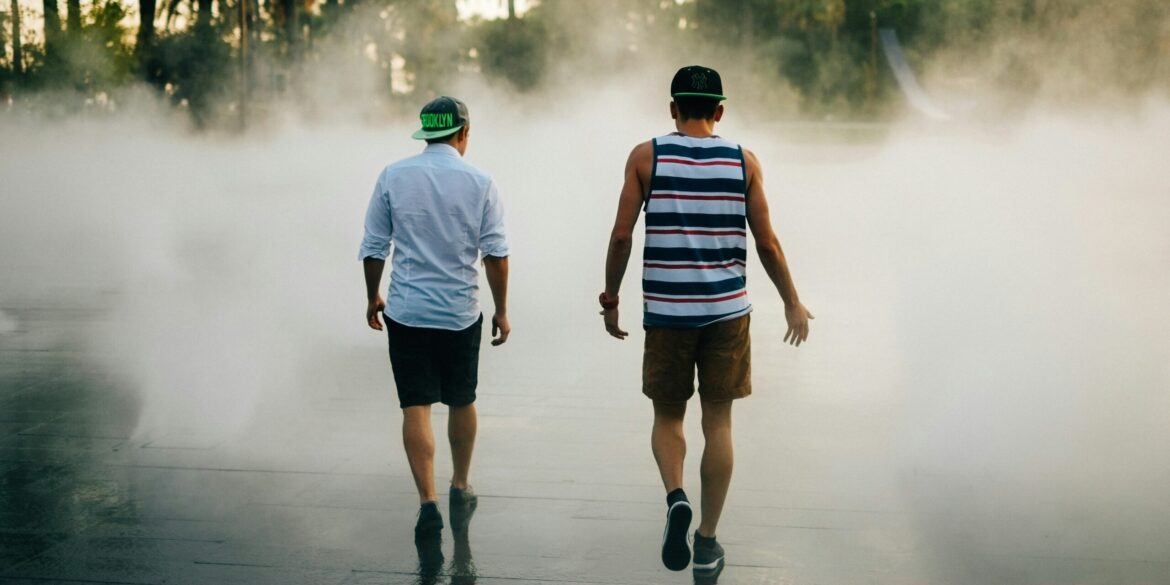McKinsey’s 2025 Future of Wellness survey highlights a striking generational shift in the U.S. wellness ecosystem. Though Gen Z and millennials represent only 36 % of the adult population, they account for over 41 % of annual spending in the wellness market—reflecting their disproportionate influence and changing priorities.
The global wellness market now exceeds $2 trillion, with U.S. consumers alone spending more than $500 billion annually. These figures underscore the scale of a sector driving innovation across health, mindfulness, beauty, and preventive care. In 2024, the U.S. wellness market reached an estimated $1.4–2.2 trillion, depending on the analysis, and is expected to continue growing at a 5–6 % compound annual rate through 2034. Key growth drivers include mental health, personalized medicine, fitness, nutrition, and wellness tourism.
Read Also: https://mensnewspaper.com/clean-transparent-minimalist-grooming-mens-skincare-goes-back-to-basics/
Gen Z and millennials are deeply committed to wellness, treating it as an integral, everyday practice rather than occasional indulgence. They frequently invest across multiple subcategories—sleep optimization, cognitive enhancement, beauty, mental health, and gut/heart health. Younger adults report higher stress and unmet needs in areas like cognitive health, heart health, and mental wellness. About 40 % of Gen Z say they feel “almost always stressed,” fueling their search for solutions.
McKinsey identifies Gen Z and millennials as “maximalist optimizers”—tech-savvy, experimental consumers who seek personalized, data-driven wellness—and contrasts them with more traditional or passive segments. Their behavior is influencing industry strategy at a fundamental level.
Wellness brands are rapidly aligning with younger consumers’ desires. Companies like Hims, AG1, Momentous, and Healf offer tailored supplements and at-home testing services. These leverage lab work, blood panels, and AI to create customized wellness plans centred on areas like sleep, low testosterone, longevity, and skin care. Millennials and Gen Z actively invest in mental wellness—ranging from mindfulness apps to immersive retreats. Boutique spas and wellness travel are growing, catering to their needs for stress relief, neurohealth, and community experiences.
Wearables, genome sequencing, full-body scans, and glucose or cardiac patches are becoming mainstream. Luxury longevity clinics offer MRIs, NAD+ supplementation, hyperbaric oxygen, ketamine-assisted neurofeedback, and more—focusing on disease prevention and life-extension. Hybrid spaces such as wellness-focused housing and longevity vacations feature hydroponic gardens, meditation studios, high-tech sleep guestrooms, and IV therapy—reflecting a demand to treat wellness as a long-term lifestyle.
Wellness marketing for men has moved beyond muscle and hygiene products to address mental health, hair care, erectile support, and common stigmas. Brands align with influencers like Andrew Huberman and Joe Rogan, but navigate the politics of masculinity carefully to avoid toxic messaging. Gen Z’s openness around mental health, sexual health, and appearance is reshaping norms across generations. Their social‑media-driven wellness rituals are influencing older consumers to embrace behavioral changes and more active self-care routines.
Looking ahead, broader adoption of AI-guided diagnostics, home testing, and data-integrated health services is expected. Companies will scale personalized, subcategory-specific solutions for fitness, sleep, mental clarity, and longevity. Luxury wellness services remain costly—$8K–$19K annually for executive packages and up to $40K in premium resorts. Brands face pressure to democratize experiences without diluting efficacy.
Younger consumers prioritize eco-conscious products and clean-tech solutions. This underpins the rise of regenerative-farming retreats, plant-based supplements, and environmentally sustainable wellness infrastructure. Their influence on sustainability could be a long-term shaping force in the industry.
Gen Z and millennials are not just consumers—they are architects of a new wellness era. Their collective purchases, representing over 41 % of U.S. wellness spending, are steering the industry toward daily, data-backed personalization, destigmatizing self-care, and reshaping cultural norms. Brands that prioritize customization, affordability, efficacy, and ethical engagement stand to thrive in this evolving landscape.

